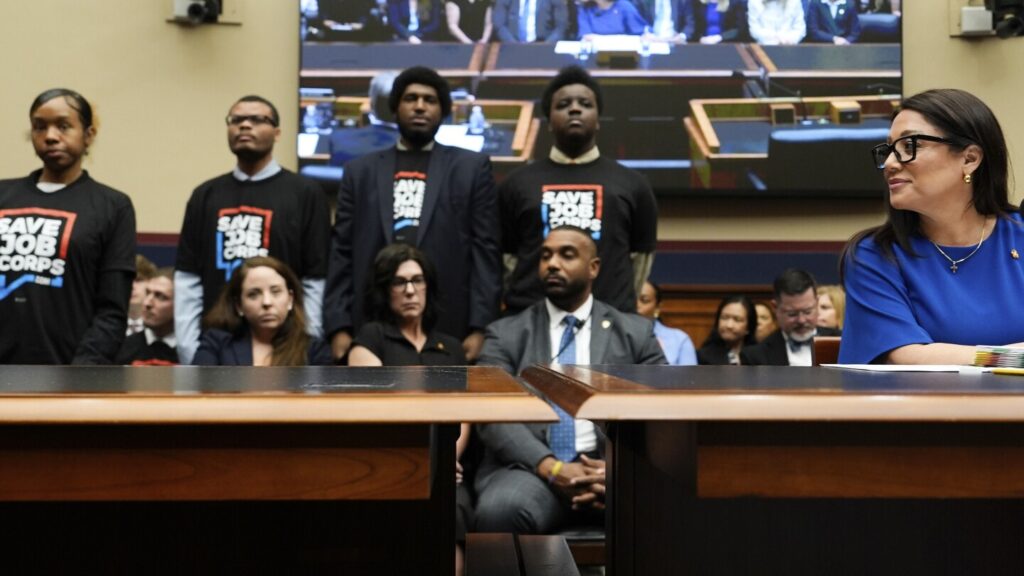
NEW YORK (AP) — In a significant legal development, a federal judge has issued a preliminary injunction preventing the U.S. Department of Labor from shutting down the Job Corps program, a vital residential initiative for low-income youth, until an ongoing lawsuit is resolved. The decision, delivered by U.S. District Judge Andrew Carter on Wednesday, reinforces an earlier temporary restraining order that halted the Department’s efforts to dismantle the program without congressional consent.
The injunction comes amid efforts by the Labor Department to suspend the nationwide program, which has been operational since 1964, providing essential services such as tuition-free housing, vocational training, meals, and healthcare to disadvantaged young people. Judge Carter’s ruling emphasized the legislative mandate behind the program, stating,
“Once Congress has passed legislation stating that a program like the Job Corps must exist, and set aside funding for that program, the DOL is not free to do as it pleases; it is required to enforce the law as intended by Congress.”
Background and Legal Context
The Job Corps, established during the Great Society era, was designed to assist teenagers and young adults who face challenges in completing traditional high school education and securing employment. The program’s potential shutdown has sparked a legal battle, with the Department of Labor arguing that the program’s outcomes do not justify its costs, citing low graduation rates and budget deficits as primary concerns.
Despite these claims, Judge Carter dismissed the Department’s argument that it was merely pausing operations, not closing centers. He noted,
“The way that the DOL is shuttering operations and the context in which the shuttering is taking place make it clear that the DOL is actually attempting to close the centers.”
Impact on Participants and Communities
The potential closure of Job Corps centers has raised alarms about the welfare of current participants. Many students, like those at the New York center, face dire consequences if the program is terminated. Judge Carter highlighted the case of a student who risks homelessness and losing progress towards a culinary arts certificate if the program ends.
Edward DeJesus, CEO of Social Capital Builders, expressed concern over the abrupt nature of the proposed closures, stating,
“Many of these young people live in uncertainty, so it takes time to get housing and restore a lot of those supports you need when you’ve been away from your community for so long.”
The National Job Corps Association, supported by attorneys general from 20 states, has filed a lawsuit to block the suspension, arguing it would displace tens of thousands of vulnerable youth and lead to mass layoffs.
Personal Stories and Program Benefits
Monet Campbell, a 21-year-old participant from New Haven, Connecticut, shared her transformative experience with Job Corps. After living in a homeless shelter, Campbell earned several certifications and now works at a nursing home. She credits the program with providing not just job training, but also essential life support services, including healthcare and counseling.
Campbell’s story highlights the broader impact of Job Corps beyond vocational training.
“I always got told all my life, ‘I can’t do this, I can’t do that.’ But Job Corps really opened my eyes to, ‘I can do this,’” she said, emphasizing the program’s role in boosting her confidence and future prospects.
Looking Ahead
As the legal battle unfolds, the future of the Job Corps program remains uncertain. The Department of Labor, in collaboration with the Department of Justice, is evaluating the implications of the injunction. Department spokesperson Aaron Britt maintains that their actions align with legal standards, stating,
“We remain confident that our actions are consistent with the law.”
With 123 Job Corps centers across the U.S., serving over 20,000 students, the program’s fate will significantly impact communities nationwide. As stakeholders await further legal proceedings, the case underscores the ongoing debate over the role of government-funded social programs and their effectiveness in addressing systemic socio-economic challenges.





